 Claire's Original Art Greeting Cards
There is nothing that says I care like a real snail-mail greeting card!
Click on a picture above for a plain-paper printable greeting card pdf.
Print on regular 8.5 by 11 printer paper. Fold twice so that the art is on the front and the title and copyright are on the back.
Write your greeting on the inside.
Mail in an A2 Invitation Envelope.
Claire's Original Art Greeting Cards
There is nothing that says I care like a real snail-mail greeting card!
Click on a picture above for a plain-paper printable greeting card pdf.
Print on regular 8.5 by 11 printer paper. Fold twice so that the art is on the front and the title and copyright are on the back.
Write your greeting on the inside.
Mail in an A2 Invitation Envelope.Anger and Loneliness Are both Derived from Great Expectations
March 31st, 2008 · No Comments

It occurred to me this morning that anger is a lot like loneliness.
The difference between feeling lonely and simply being alone is that when you’re lonely you have the expectation and desire of not being by yourself—you expected that you would be sharing with someone.
When you’re angry you have the expectation and desire that something should be different—you think that your circumstances are not up to what you deserve. (Sometimes it’s just that your perception of something is skewed, not the circumstance itself.)
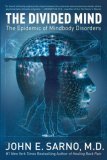
I just got the following in my e-mail:
Ruth King will lead a daylong for women entitled Transforming Personal Rage on Sunday, April 13 at Spirit Rock from 9:30 am to 5 pm. Proceeds for this event will benefit the Spirit Rock Diversity Program. Rage sits at the crossroads of personal transformation. Those of us seeking spiritual enlightenment will inevitably stumble upon the undeniable truth of personal rage on the path. Rage is not to be understood as a useless emotion, empty of story, knowledge or wisdom. Rather rage is fierce clarity and untapped fuel. Embraced with compassion, this trapped energy becomes an intimate and empathic teacher of balance and integrity in our lives.
In this daylong experiential workshop, you will develop a deeper understanding of personal rage. You will:
– Discover your disguises of rage and why you wear them.
– Learn how to break habitual pain patterns in significant relationships.
– Learn how to stay centered when others are raging.
– Learn how to stop contributing to generations of rage.
– Learn a stillness practice to befriend rage and build inner peace.
We cannot transform rage by being against it or by being afraid of it. In this workshop, we discover that when we are paying kind attention to rage, it ceases to be a problem.

John Sarno MD, lead author of The Divided Mind, thinks that everyone in the United States has this internal rage. He blames it on
- Internal conflict
- Life’s pressures
- Residual childhood anger
They all seem to come down to the belief that “it shouldn’t be like this.”
(from The Mindbody Prescription by Dr Sarno)
Ms King and Dr Sarno are of a mind in their concept of rage. They differentiate between rage and anger in a similar way, with anger being more transient and rage ingrained and unconscious.
Dr Sarno’s bailiwick is chronic physical pain and he cures it in many people by explaining to them that they have unconscious rage. He says that it is not necessary to cure the rage, only to understand that the emotions are causing the pain, then you can turn off your pain.
Dr Sarno believes that, for some people, the causes of their rage are more consequential and they need psychotherapy to help end their physical pain.

If this seems far fetched to you, ask yourself why embarrassment brings on a red face and fear brings on sweaty palms. With intense situational anger your body reacts. Why wouldn’t it react with long term subdued rage? Why wouldn’t it react with chronic pain? Or any immune system dysfunction, especially autoimmune diseases, often the hardest to treat and often have no known cause.
If you’re not convinced that emotions effect the immune system, read Dr Candace Pert’s Molecules of Emotion. (Dr Pert is a scientist who worked extensively at the National Institutes of Health.) You’ll discover that your immune system cells are percolating throughout your body and that they have neuro-peptide (molecules of emotion) receivers all over them.
Tags: Advice · Emotional Freedom
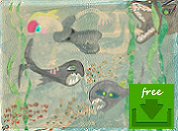
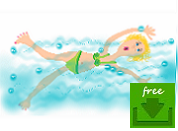
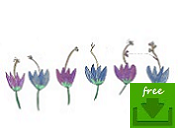
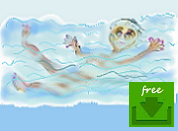



0 responses so far ↓
There are no comments yet...Kick things off by filling out the form below.
Leave a Comment